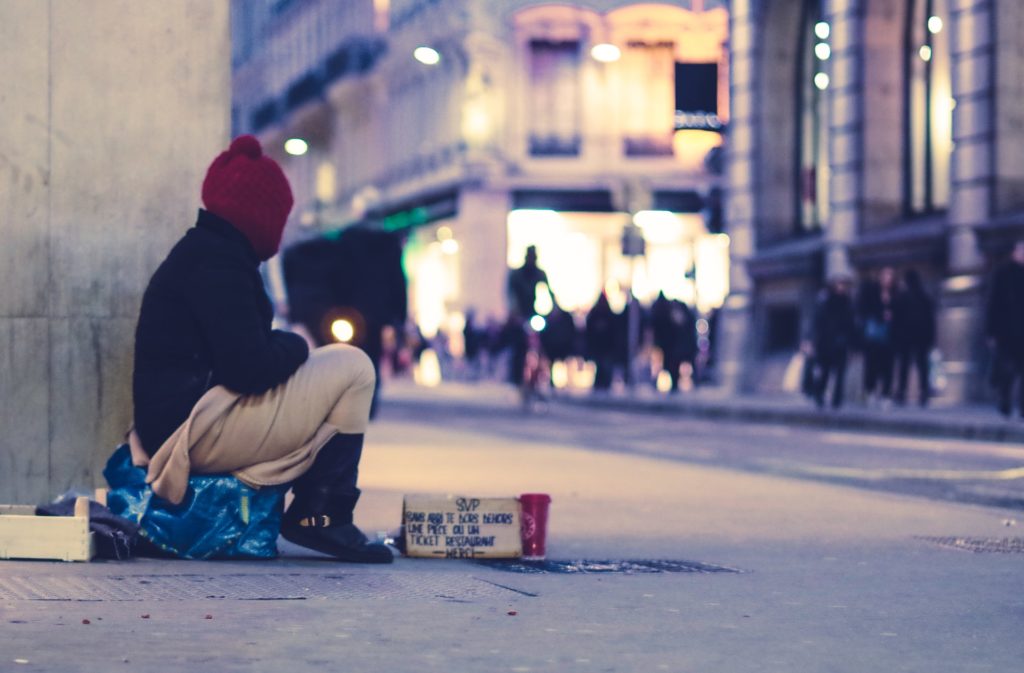Four NGO’s, including Médecins Sans Frontières, are concerned about the rising number of unaccompanied children who are homeless and living on the streets of Brussels.
Some of the children are as young as nine years old.
“These unaccompanied children cannot find a safe family environment,” the organisations said in a press release, adding that there is a structural lack of resources for an adapted reception and guidance when it comes to homeless children.
“They undergo the same ordeals as the adults on the streets in our country, live in extremely precarious conditions and are encouraged to engage in risky behaviour, such as the consumption of alcohol or medication,” said Julien Buha Colette, head of operations at Médecins Sans Frontières in Belgium.
The other field organisations sounding the alarm are SOS Jeunes, Dokters van de Wereld (Médecins du Monde), and Het Burgerplatform voor Vluchtelingen.
Volunteers who make the rounds on the streets or visit squatters are observing the same thing: more and more children and many of them alone.
According to the Guardianship Service, the number of unaccompanied minors on the streets in Belgium is estimated to be between 600 and 700, a wide range because it is difficult to count transient populations.
One source of data comes from the number of requests for housing made to Médecins Sans Frontières after multiple squatting locations were closed down; one-third of those requests came from minors.
In the first half of 2021 alone, SOS Jeunes assisted 475 children, 95 percent of the total number of children assisted in the whole of 2020.
In June 2021, three times as many children were seen as in May, that organisation reported.
The field organisations also observed that it concerns increasingly younger children.
Many of the children are migrants and the reasons that brought them to Brussels are complex, but their needs are the same.
“Every minor we meet is looking for a place to sleep for the night, for food, for clothes, for medical care and a safe environment,” said Maité Montuir, coordinator of the Medibus of Dokters van de Wereld.
The organisations say the solutions that currently exist are only temporary, and often inappropriate.
“Especially for the children who do not want to be reported to the authorities because of fear or mistrust, the situation is critical,” said Geraldine Julien, coordinator at SOS Jeunes.
“These children have nowhere to turn and are completely on their own, with no solutions or alternatives, and this is in the heart of our European Capital.”
The four organisations say they’re often powerless in the face of such circumstances as it’s near-impossible to find solutions for this growing group of wandering children.
Related News
- Brussels to put funding towards using empty buildings for temporary housing
- Increasing numbers of unaccompanied migrant minors in Brussels
- Saint-Josse to add more social housing
Just last June, 25 sleeping places were created for minors by the Citizens' Platform for Refugees, SOS Jeunes and Médecins Sans Frontières.
“It is not normal for a humanitarian organisation to have to free up its own resources and beds to fill the gaps of a policy that is failing, especially when it comes to children,” said Mehdi Kassou, spokesperson for the Platform for Refugees.
“In the 6 weeks following the opening of the sleeping places, we had to turn 163 children away because everything was full. And we had to watch as these children returned to the streets or to inappropriate squats.”
Kassou pointed out that in the meantime, the emergency homeless shelter remains overcrowded and the doors of more and more shelters are closing.
“All this in a pandemic context that is not yet over,” said Kassou.
The organisation said that despite Belgium being a signatory of the International Convention on the Rights of the Child, there is no concrete and appropriate solution for these children.
They are asking that the children be treated as minors, regardless of their immigration status, so that their fundamental rights are respected and they are adequately assisted.
Belguim’s Secretary of State for Asylum and Migration Sammy Madhi stressed that the phenomenon of unaccompanied minor migrants was not new.
“The phenomenon is real and has existed for many years. At European level, we are talking about tens of thousands,” Mahdi said in a radio interview.
He said that while it’s difficult to work out asylum procedures for such vulnerable migrants, “we try to work as best as we can” and that there has already been established cooperation with countries like Morocco, which is the country of origin for many of them.
Médecins du Monde reacted to those comments with a statement saying that because Belgium is a signatory to the Convention on the Rights of the Child, the authorities are responsible for providing solutions.
“For these unaccompanied minors, we demand immediate and appropriate care,” the statement reads. “This means: shelter, food, access to health care and a safe and caring place where they can make a choice about their future in an informed and considered manner.”
They emphasised that migration status should come second.
“What we are talking about today is first and foremost the protection of children left to their own devices on the streets of Brussels, before being a migration issue,” they said.
“We are asking for appropriate mechanisms for the reception of these children, which are not currently in place.”

